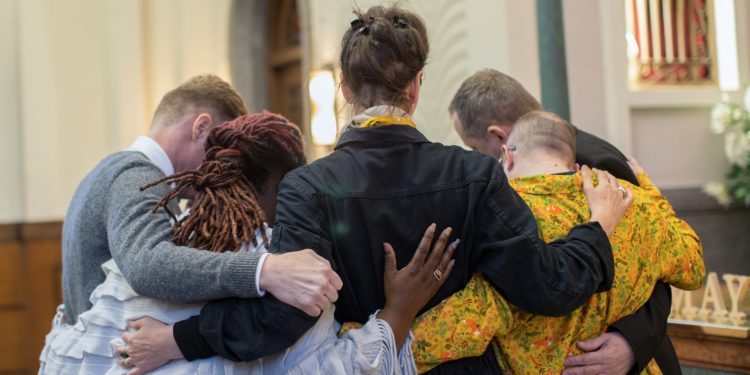While a funeral director’s primary responsibility is to handle the logistics of the funeral service, one of the most underrated things a funeral director does is provide emotional support and guidance to the bereaved family and friends of the deceased.
Typical funeral director services include coordinating with the cemetery or crematory, preparing the body for burial or cremation, and arranging the details of the service itself. But often they act as a source of comfort and solace for those who are grieving.
They may provide guidance on grief support resources, help families navigate the funeral planning process, and offer a listening ear to those who need to talk about their feelings and memories of the deceased.
In many cases, funeral directors go above and beyond their duties to provide emotional support to those who are grieving. They may make themselves available outside of business hours, check in with families after the funeral service, or offer additional resources to help them cope with their loss.
While the logistical aspects of their job are essential, the emotional support and guidance provided by funeral directors are just as vital.
The Misconceptions
A funeral director’s role is one of the most important in the lives of the bereaved as they come to terms with the grief of losing a loved one.
And perhaps it’s one of the most common industry misconceptions that, after dealing with bereavement every day, funeral directors must be immune to the emotions of grief and loss. But this is not true and being a funeral director is a vocation.
So, when you are experiencing those difficult times, they understand your grief because the best funeral directors are committed to providing compassionate care and support. And although funeral directors will always maintain professional boundaries, this ability for compassion and care is a vital skill. They are there to offer support every step of the way.
Remember too, funeral directors must be available to work all hours of the day. A funeral director will be required to help families who have lost a loved one, whether it’s 10am or 10pm, or later.
Formal Training
Funeral directors also often have ties with grief counsellors and can offer counselling as part of their service.
In modern times, funeral directors are highly qualified, undertaking training programs that include courses in grief counselling, communication skills, and empathy training. All this leads to them being able to offer the best professional services and understand how to support bereaved families.
And of course, there’s no substitute for experience. So, as well as formal training, funeral directors will develop their compassion through on-the-job experience. Working with families in grief can be emotionally challenging, but means funeral directors are constantly developing their empathy and understanding of the grieving process.
Many seek out ongoing training and development opportunities to enhance their skills and knowledge too.
How a Funeral Director Will Help Emotionally
A compassionate funeral director will take the time to listen to your needs and concerns and show empathy for your situation. They will understand that you are going through a difficult time and will do their best to provide comfort and support.
They will work with you to create a funeral or memorial service that honours your loved one and reflects your values and beliefs.
Attention to detail is also key. Your funeral director will check every detail of the funeral or memorial service to ensure that it meets your expectations and the wishes of your loved one in the best possible way. He or she will likely have attended funerals at all the potential locations.
A good funeral director will be available and accessible to you throughout the funeral planning process and after the service is over. They will be responsive to your calls and emails and will make themselves available to answer any questions or concerns you may have.
A compassionate funeral director will also offer grief support resources and information to help you and your family cope with your loss. They may provide information on local grief support groups, counselling services, or other resources that can help you during this difficult time.
Final Thoughts
Compassion is a crucial aspect of the funeral director’s role, and many professionals in this field take this responsibility very seriously, continually seeking to improve their skills and knowledge to better support families in need. They can provide resources for support and offer a comforting presence to grieving families and sometimes to the detriment of their own emotional needs.
While it may seem like a cliché, a good funeral director will always go the extra mile; not because they should but because they care enough to make sure everything is right for you and your family.













































































